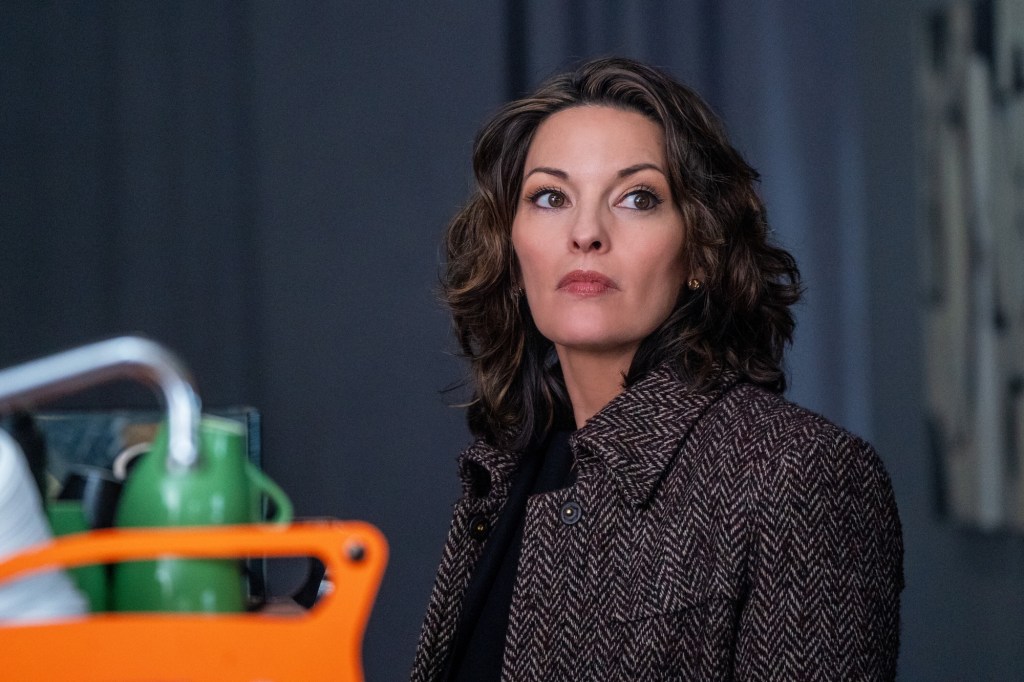
The Homecoming Command: Alana De La Garza’s Return as a Linchpin in the FBI Universe
In the intricate tapestry of modern television, where franchises sprawl and character arcs weave across multiple series, a “big move” can resonate far beyond a mere casting announcement. It can be a strategic reinforcement of a narrative universe, a heartwarming return for devoted fans, and a deepening of the very foundation upon which a show is built. Such is the significance of Alana De La Garza’s return as Special Agent in Charge Isobel Castille to the main FBI series, a homecoming that isn’t just a plot point, but a powerful illustrative moment in the evolution of the Dick Wolf procedural empire.
De La Garza’s journey through the FBI franchise has been a fascinating illustration of character development and franchise utility. First introduced as the no-nonsense SAC on FBI, Isobel Castille quickly established herself as a formidable figure – intelligent, principled, and possessing a commanding yet empathetic presence. She was the steady hand guiding the field team through complex cases, a voice of reason amidst chaos, and a critical strategic mind. Her character then briefly transitioned to FBI: Most Wanted during its nascent stages, a strategic move to lend gravitas and immediate familiarity to the spin-off, showcasing the interconnectedness of the universe from its inception. This brief sojourn, however, only underscored her natural fit within the original series’ framework, making her “return home” feel not just welcome, but inevitable.
The phrase “returns home to the main series” is laden with meaning. For the viewer, it evokes a sense of comfort and continuity. Isobel Castille, in many ways, represents the institutional memory and ethical backbone of the FBI’s New York office. Her presence grounds the high-stakes drama in a tangible command structure, reminding audiences that even the most daring field operations are part of a larger, disciplined machine. When she speaks, there is an authority born not just of her rank, but of a shared history with the characters we’ve grown to know and trust. Her re-establishment as the primary SAC provides a familiar anchor, reinforcing the show’s identity and its core values. It’s like a beloved captain taking the helm of her flagship vessel once more, signaling stability and purpose.
Beyond mere familiarity, Isobel’s return is illustrative of the narrative depth she brings. Her character is a nuanced portrayal of leadership – strong without being unfeeling, decisive without being rash. She is a woman in a position of immense power and responsibility, navigating the complexities of federal investigations, political pressures, and the human cost of crime. Her interactions with Maggie, OA, Scola, and Tiffany are not just directives; they are often moments of mentorship, moral support, and strategic counsel. She is the experienced general who has seen it all, providing perspective and a calm demeanor that can diffuse tension both within the squad room and the unfolding case. This deepens the character dynamics and provides a vital counterpoint to the more impulsive, front-line actions of the field agents.
Furthermore, this “big move” serves as a powerful illustrative example of how the FBI franchise, much like its Law & Order predecessor, leverages its interconnectedness. By having a central figure like Isobel Castille firmly entrenched in the flagship series, it strengthens the entire universe. Her decisions and actions can have ripple effects that are understood across FBI: Most Wanted and FBI: International, making the world feel larger and more unified. It’s a subtle yet effective way to remind audiences that all these agents, no matter where they are stationed, ultimately operate under the same overarching federal umbrella. It transforms what could be disparate shows into an expansive, living ecosystem.
In essence, Alana De La Garza’s return as Isobel Castille is far more than a simple casting change; it is a meticulously calculated move that invigorates the main series, enriches its narrative possibilities, and solidifies the structural integrity of the entire FBI franchise. It’s an illustrative masterstroke that speaks to the power of continuity, the enduring appeal of strong leadership, and the profound impact a well-placed character can have on a sprawling fictional universe. Her homecoming isn’t just a comfort; it’s a strategic pillar, ensuring the FBI franchise continues to stand strong, commanding attention and admiration for its compelling storytelling.

